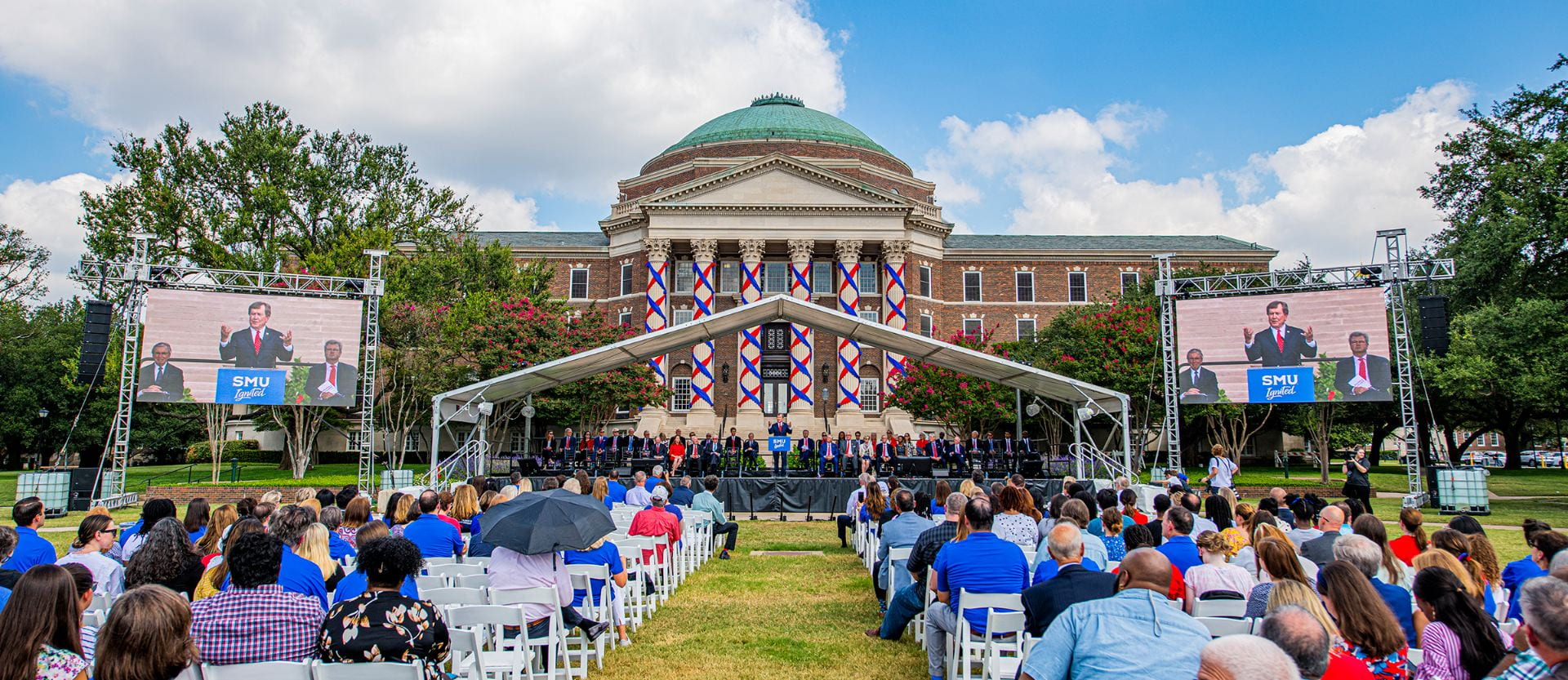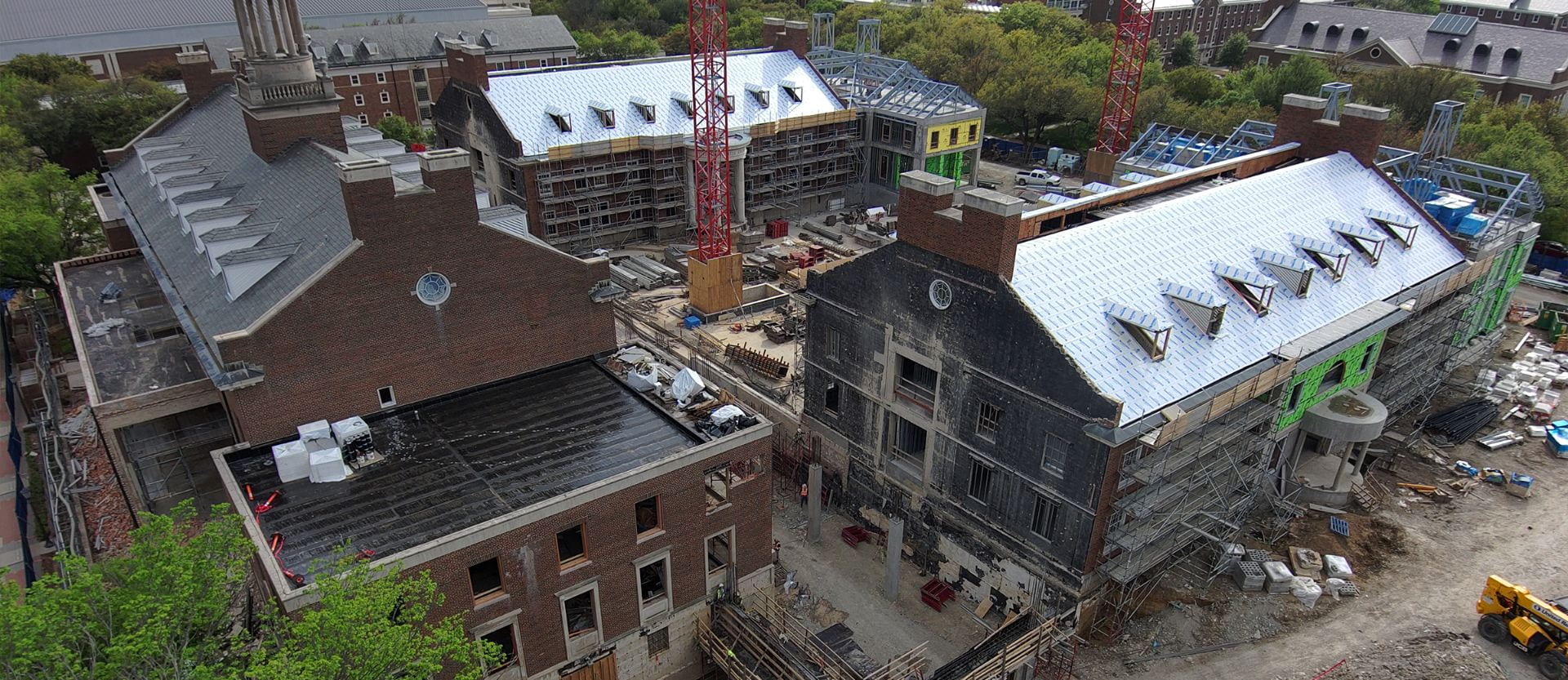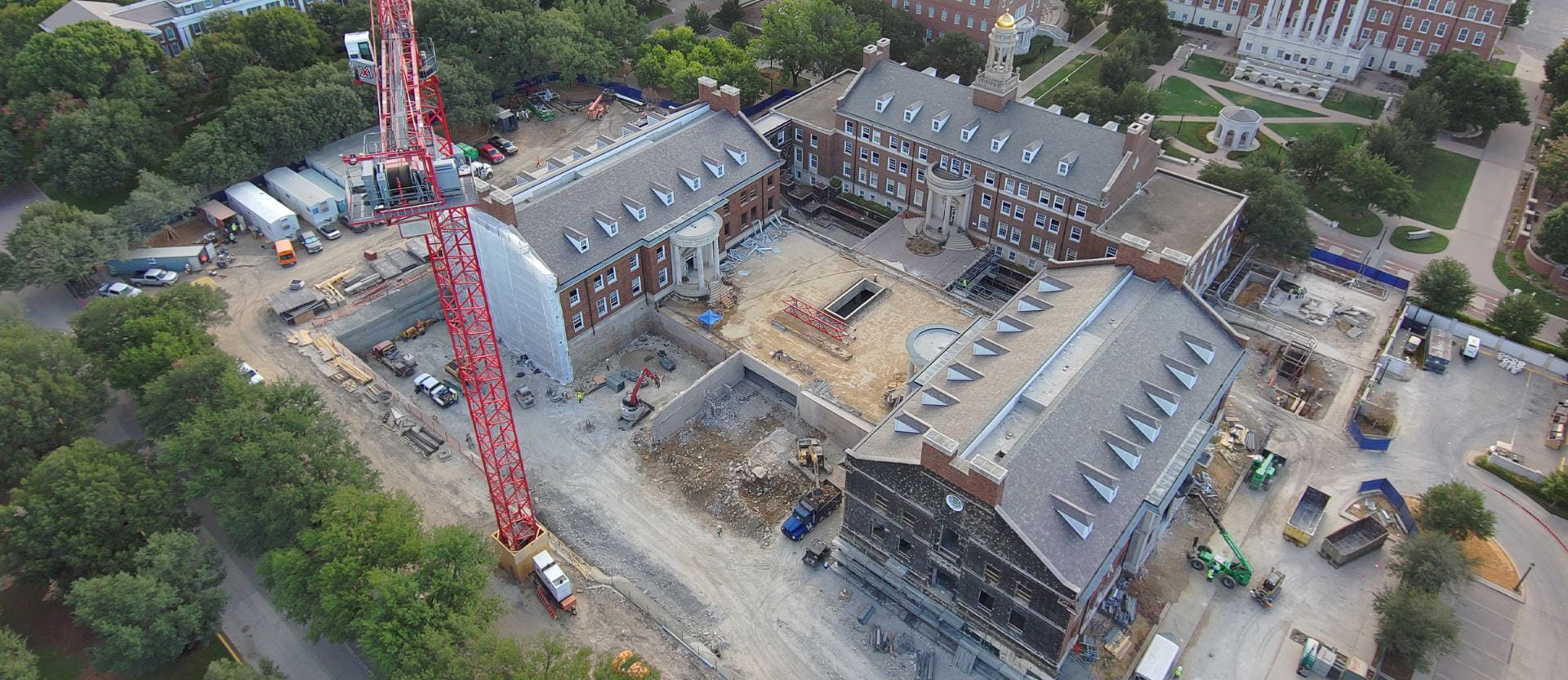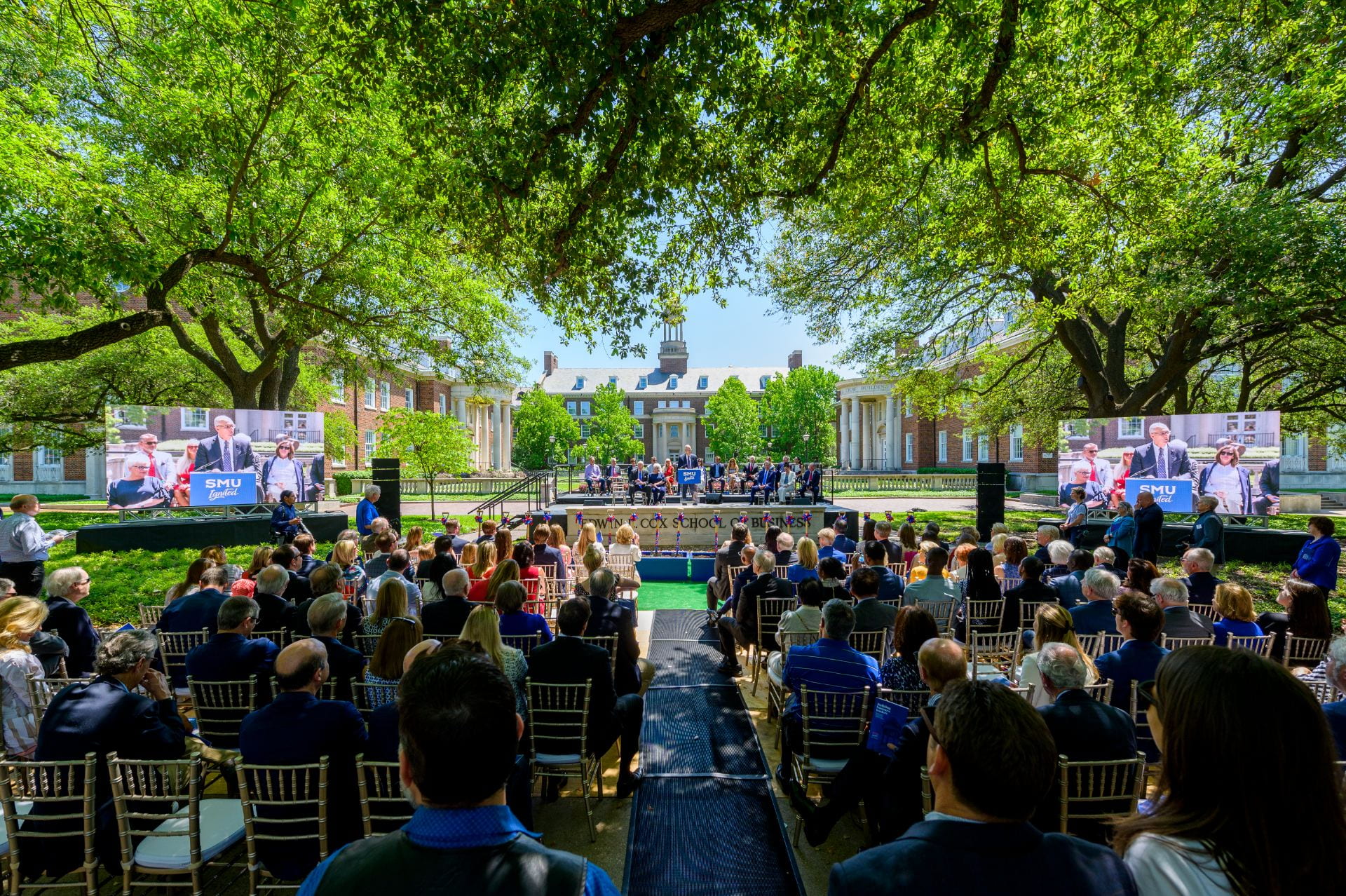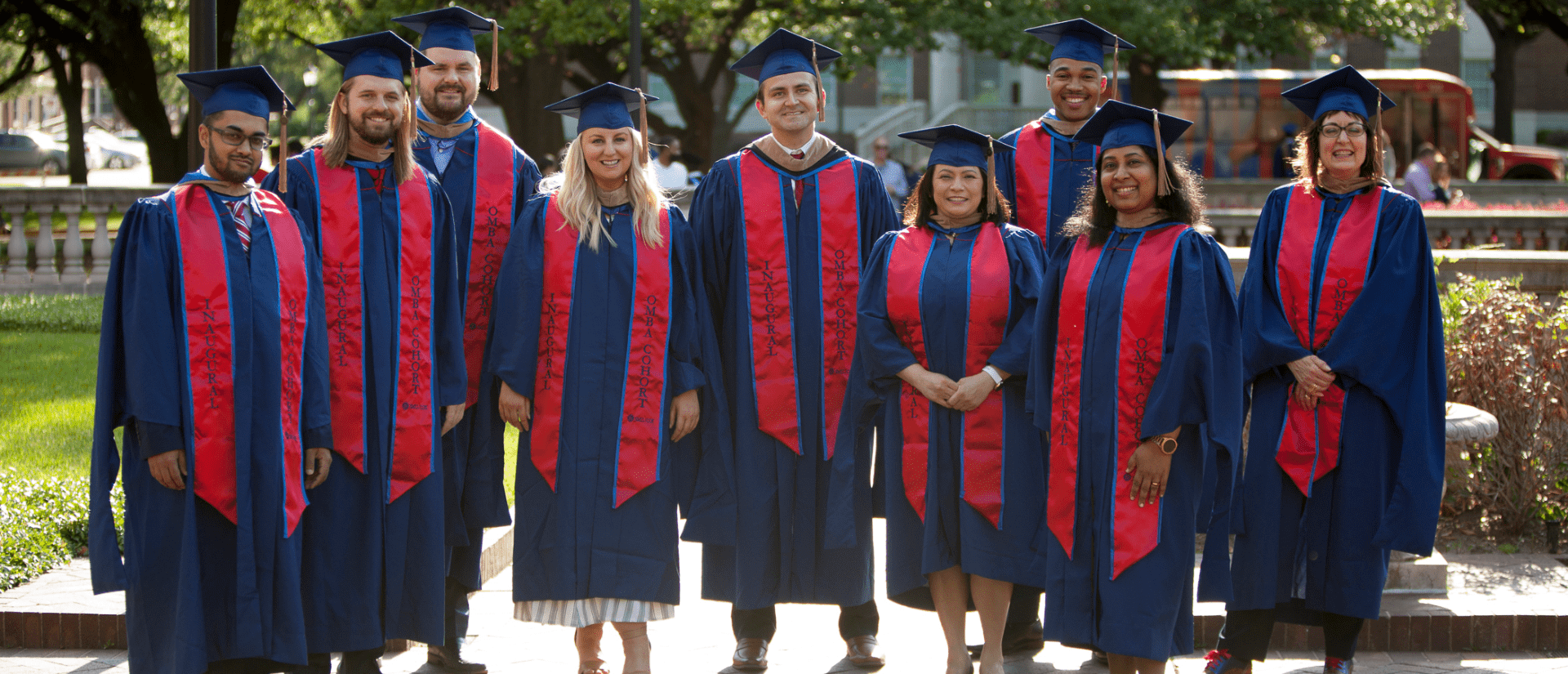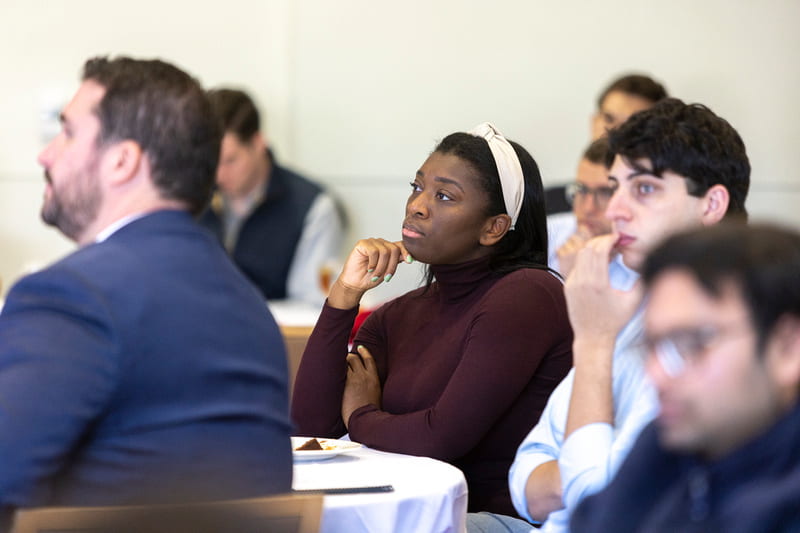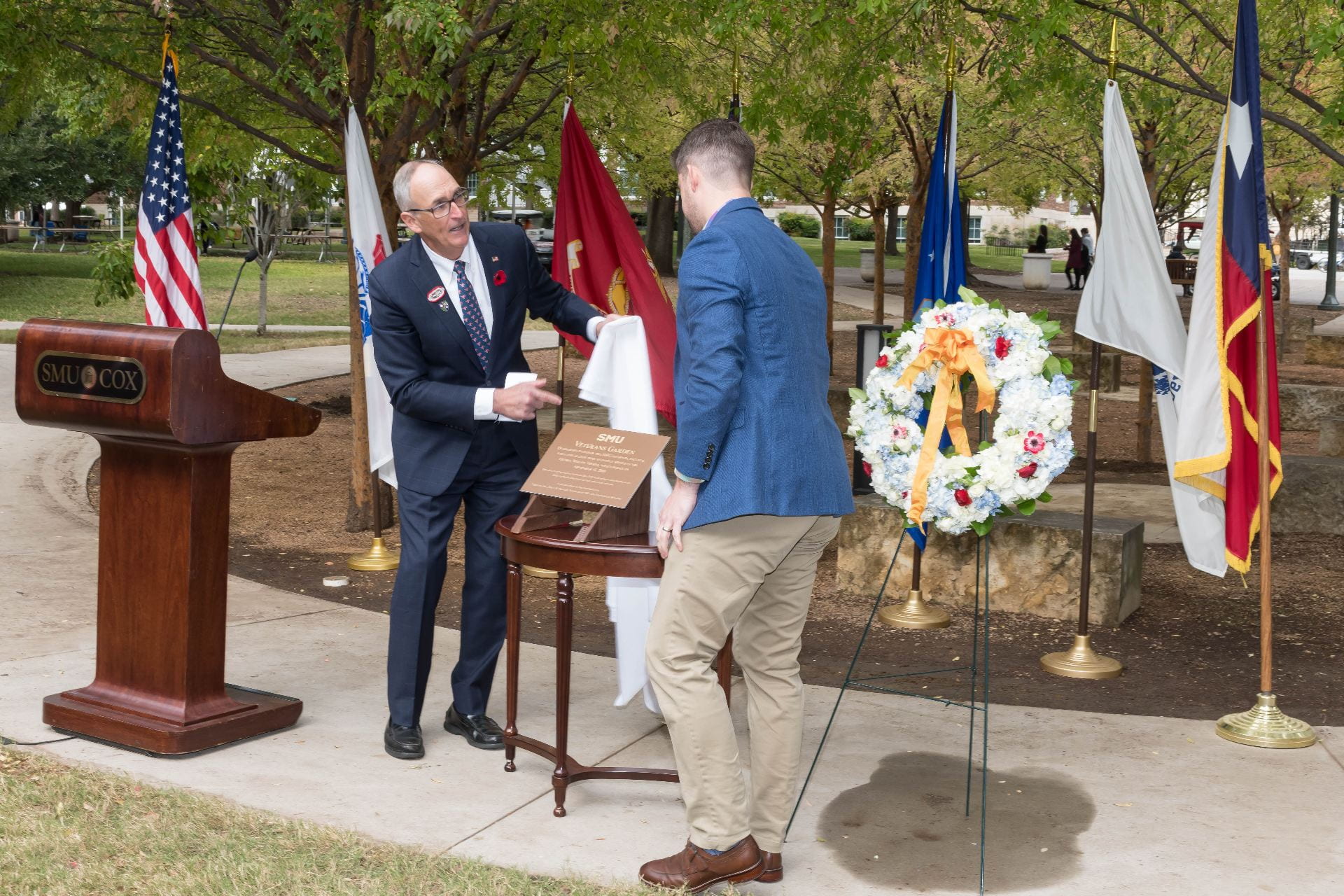Delivering on the promise of partnership with the city it calls home, SMU launched a $1.5 billion fundraising campaign in September focused on the opportunities created through scholarships, meaningful research and teaching and community. With the support of its donors, the exemplary private University intends to reimagine the role of education and SMU itself in an era of rapid change.
SMU Ignited: Boldly Shaping Tomorrow is the University’s third comprehensive fundraising campaign, all of which launched under the leadership of President R. Gerald Turner, who joined the University in 1995. Aiming for the largest fundraising target ever set by a private college in Texas, SMU Ignited is positioned to accomplish three major objectives:
- Transform the lives of high-achieving students by enabling them to come to SMU regardless of means. The University will offer more need- and merit-based scholarships, including meeting full financial need for high-performing Pell Grant-eligible students from North Texas and providing a financial safety net for students who can be derailed by sudden financial crises. $450M+ goal
- Enrich teaching and research by investing in faculty pursuits that have substantial societal impact. The University’s plan to reach the highest level of research capability recognized by the Carnegie Classification system will also support excellent teaching, corporate and industrial partnerships and Dallas’ emergence as a technology hub. $600M+ goal
- Enhance the campus and community by increasing partnerships with corporations and nonprofits, such as the West Dallas STEM School and Dedman School of Law legal clinics for those who cannot afford representation. The University will also bring more people together on campus for diverse programming and to boost Division I athletic teams, investing in facilities, programs, student-athlete success and community outreach programs. $450M+ goal
“This moment is built on more than 100 years of excellence, our vision for the future and our partnerships with Dallas and the communities around us,” Turner says. “We are heartened by the opportunity to make an SMU education accessible for more excellent students from every background, and we’re energized by the opportunity to extend our impact, particularly through research, across North Texas and around the world. Quite simply, this effort is about strengthening our ability to do good in the world.”
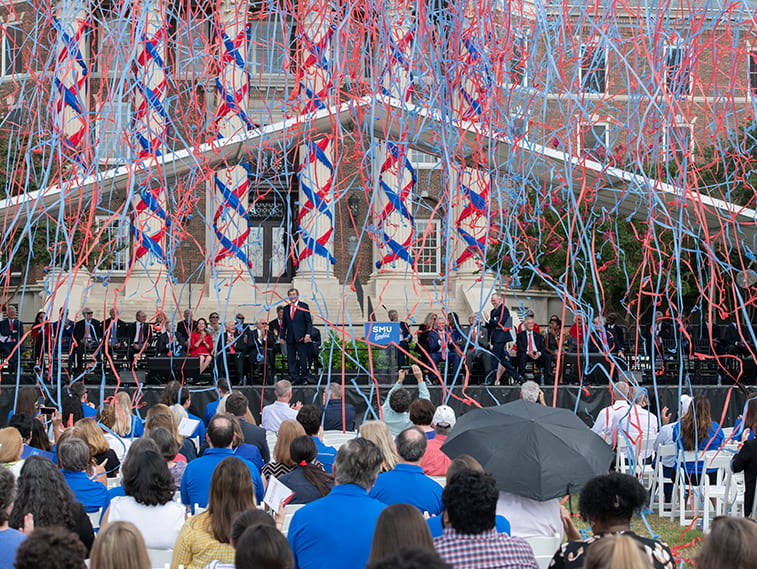
The University kicked off the public phase of the campaign Friday, Sept. 17, gathering guests, students, faculty and staff on the Main Quad in front of iconic Dallas Hall to celebrate the investment in the future of SMU and the North Texas region it serves. The festive announcement was followed by an all-University picnic, accompanied by the SMU Mustang Band and cheer squads.
Tens of thousands of donors have established strong momentum during the planning phase of the SMU Ignited campaign by committing more than $654 million to date. That amount already exceeds the $542 million raised during the entire life of SMU’s first campaign, A Time to Lead, which ran from 1997-2002. The University raised $1.15 billion in its second campaign, SMU Unbridled: The Second Century Campaign, which ran from 2008-2015 and broke all records for fundraising among Texas private universities. SMU Unbridled provided for 689 endowed scholarships, 54 new endowed faculty positions and significant funding for 24 major new facilities or renovations.
As a private university not eligible for most state and federal education funding, SMU is tuition-dependent for most operational costs. The generosity of donors is vital for SMU to continue its upward trajectory through new programs and facilities, endowed faculty and scholarships. Find out more information about the campaign at smu.edu/ignited.
The gifts and commitments that have accrued during the planning phase of the SMU Ignited campaign signal extraordinary confidence in the University’s future and its ability to serve the surrounding community, including:
- $100 million from the Moody Foundation — the largest gift in SMU history — to create the Moody School of Graduate and Advanced Studies.
- $50 million — the largest contribution in SMU history from an alumni family — from Carolyn and David B. Miller, BBA ’72, MBA ’73, to support Cox School of Business students and faculty.
- More than 90 individual contributions of $1 million or more.
Gerald J. Ford, convening co-chair of the campaign, has been an SMU trustee since 1992, witnessing firsthand the transformation of SMU into a nationally recognized institution that boasts outstanding teaching and research faculty. His family provided the lead gift for the campus’ newly opened research hub, the Gerald J. Ford Hall for Research and Innovation.
Global in scope, the campaign already has kickoffs scheduled for Houston and Atlanta and ones planned for New York, Los Angeles and other regions with high concentrations of alumni and current students. SMU alumni are invaluable supporters, contributing 62% of donations to the successful SMU Unbridled campaign and just over half of donations to the earlier Time to Lead campaign.
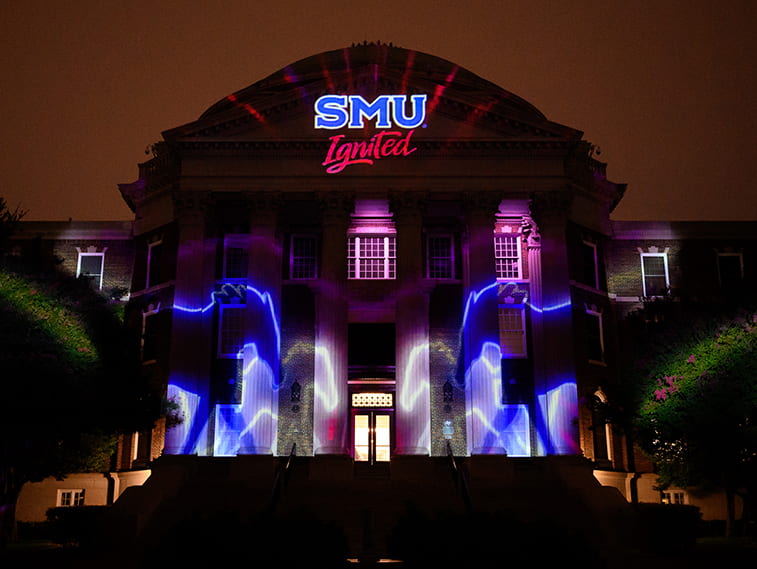
In addition to Ford and SMU Board of Trustees Chair Robert H. Dedman, Jr., ’80, ’84, campaign co-chairs include trustees Michael M. Boone, ’63, ’67; Kelly Hoglund Compton, ’79; Ray L. Hunt, ’65; David B. Miller, ’72, ’73; Caren H. Prothro; and Carl Sewell, ’66. Ford, Hunt, Prothro and Sewell have been partners with Turner in SMU fundraising since the University’s first campaign launched in 1997. Find out more about campaign leadership and the 100-volunteer SMU Ignited organization at smu.edu/ignited.
As higher education continues to be a major factor in economic mobility, the ability of SMU to offer more aid to students in the North Texas region based on financial need can create positive economic ripples in their communities and in the region as a whole.
“SMU’s economic impact on the Dallas economy is already $7 billion a year,” says Dale Petroskey, president and CEO of the Dallas Regional Chamber of Commerce. “This new campaign will allow SMU to add even more to improve our community, and by providing more scholarships, will give many more educational opportunities for local students who otherwise would not be able to attend SMU. It’s exciting to see SMU’s continuing commitment to invest to fuel both the human capital and the economic engine of Dallas.”
The pledge to raise $450 million for underserved students includes plans to provide academic and social support — including for those whose parents did not attend college — to ensure successful graduation and retention rates. The additional scholarship support is also expected to contribute to campus diversity.
While SMU has long been an exemplary teaching institution, the University’s growing research portfolio is drawing international recognition and creates new opportunities for partnerships in and around Dallas. Building the University’s capability to hire star-quality research faculty and provide them with the resources they require, including post-doctoral staff, is a major component of this new campaign. The gift creating the Moody School of Graduate and Advanced Studies in November 2019 was a signature investment in both graduate education and research.
“Research is essential to SMU’s ability to make an impact through technology,” says Rich Templeton, chairman, president and CEO of Texas Instruments and an SMU trustee. “Building a strong future for our community requires comprehensive education and robust research opportunities. Providing greater access for students and better support for PhD research makes an impact that goes far beyond the SMU campus.”
SMU has a 10-year plan to achieve inclusion in the most prestigious research category available to American universities — the Carnegie Commission on Higher Education’s R1 classification, which is awarded to those universities with the highest levels of research. The framework created by the Carnegie Commission measures research activity by a variety of factors, including research expenditures, number of research doctorates awarded and number of research-focused faculty members. The classification is based entirely on publicly available data and not on qualitative peer or expert assessments. SMU currently holds the Carnegie Commission’s R2 status for high research activity, having advanced past 55 other universities since 2005 on the road to R1 status.

